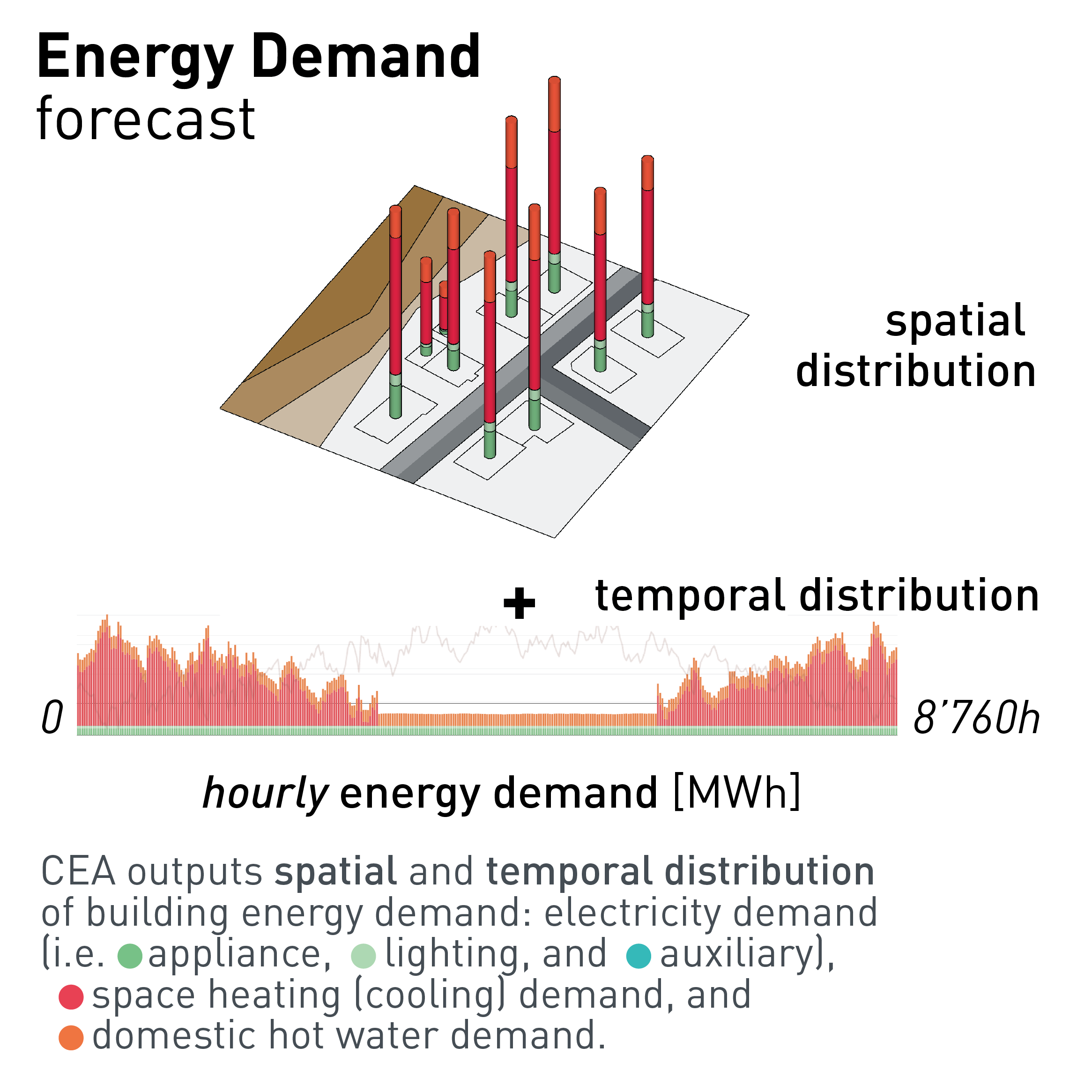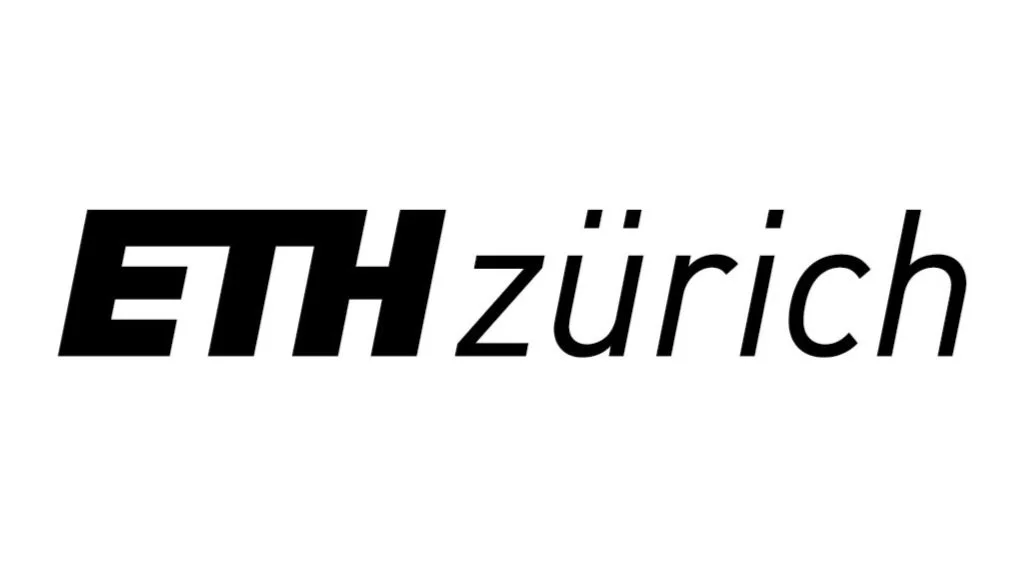Urban Building Energy Modeling
for Urban Decarbonisation Planning & Design
with the Open-Source CEA-4
#research #teaching #practice
What is CEA?
The City Energy Analyst (CEA) is an urban building energy modeling (UBEM) platform and one of the first open-source initiatives of computation tools for the design of low-carbon and highly efficient cities. The CEA combines knowledge of urban design and energy systems engineering in an integrated simulation platform. This allows to study of the effects, trade-offs and synergies of urban design scenarios and energy infrastructure plans. The CEA Team is committed to empowering researchers and practitioners to plan and design low-carbon cities.
Popular CEA Features
Need inspiration?
Check out how other CEAers have been using CEA in their research projects, case studies, teaching, student theses, and read CEA publications.
Image source: Z. Shi, J.A. Fonseca, A. Schlueter, A review of simulation-based urban form generation and optimization for energy-driven urban design, Build. Environ. 121 (2017) 119–129.
Multiple scales,
Multiple interfaces
Born at ETH Zurich in 2013, the open-source CEA has empowered architects, urban designers, and engineers worldwide to simulate building energy performance and explore urban decarbonisation at neighbourhood and city scales.
CEA supports multiple user interfaces tailored to different expertise levels: CEA-4 Desktop A user-friendly GUI for non-programmers; CEA-4 Console A command-line interface ideal for researchers and developers; cea4gh for Grasshopper an integration into parametric urban design workflows via Rhino/Grasshopper.
While we continue to support the open-source community, we are also actively developing CEA-4 Pro, a new web-based version with enhanced feature and cloud computing.
CEA Desktop downloads
As of 30 June 2025, CEA was downloaded in at least 75 countries/regions. The CEA Team is proudly calling 🇨🇭Zurich (CH) and 🇸🇬 Singapore (SG) home.
Looking for CEA Series 3?
You can still download CEA Series 3 - v3.39.4 here.
available on
Looking for a CEA event?
View all upcoming and past CEA events here.
Become a CEAer today!
You can choose from 7 ways to be part of the CEA community.










![[Zurich, CH & online] 2026 Spring CEA Official Course](https://images.squarespace-cdn.com/content/v1/61e145bff396b63d6444554a/1762875788276-PDP0WMK0JBJ78IDNB3C3/Logo_ETH_black.png)






